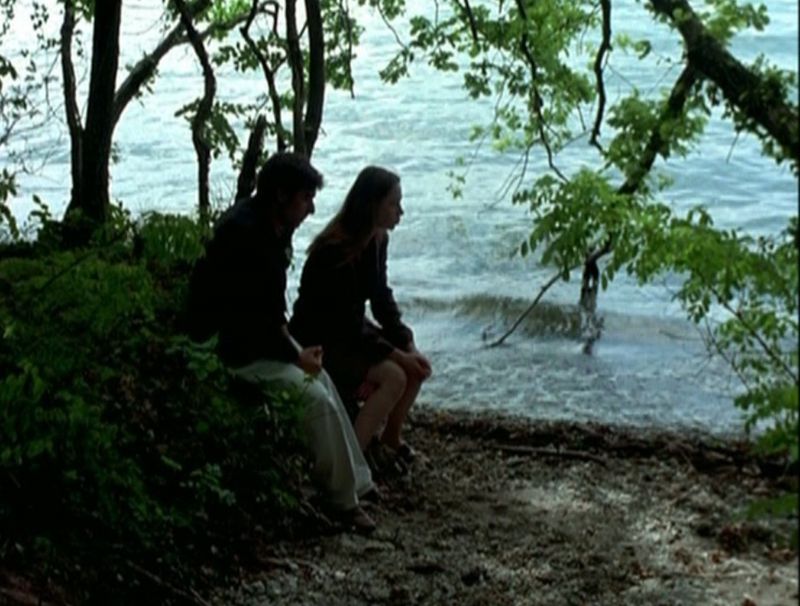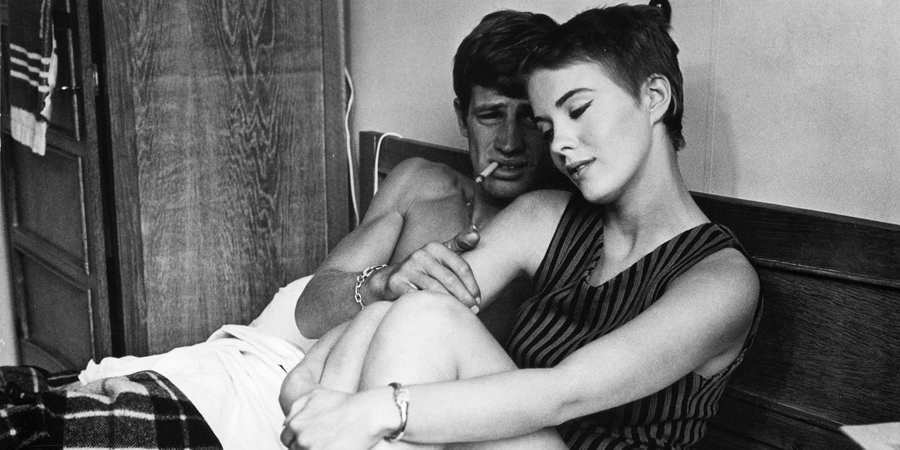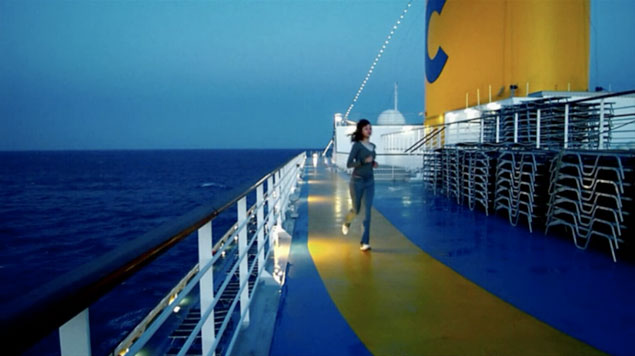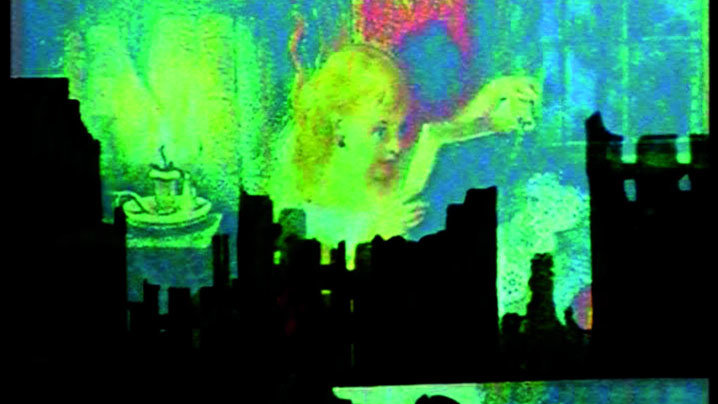6. His Depiction of the 21st Century in “Our Music” and “Film Socialism”

The adaptation of the Divine Comedy by Dante Alighieri, or the Tower of Babel we’re able to find in “Film Socialism”, have more than one thing in common, but mostly they’re used by the auteur to express the closeness and the distance inflicted by modern times.
When Godard paints all the contradictions in these three places – Hell, Purgatory and Heaven – that work as an allegory to mundane situations in the modern world, or when we find all these people confined in a big ship where nobody seems to understand each other, we are able to identify through different types of images, through sound (or it’s absence), and through words that might sound incredibly difficult to follow; the crisis he found in the communication of our century.
7. The (Shocking) Origin of the 21st Century: From Eden to Breathless to Now

To start the 21st Century, the Cannes Film Festival asked Godard to make a short film celebrating the century to come. Godard, instead, made a 17-minute documentary that showed among many other things, atrocities committed by the Nazis, and right in the middle of the film – and not coincidentally – there are shots of his film “Breathless”.
The narrative goes from Eden to now; it jumps back and forth between decades of the 20th century, and it portrays “Breathless” as a divisive mark – as it really is – in cinema and society for that century. And all that depiction of violence sadly marks more of what we have coming from this new century.
8. He Might Be the Most Influential Filmmaker of All Time

The only filmmakers not influenced by Godard are the ones who died before “Breathless” premiered. All the crazy rhythm dictated by that film changed cinema forever, and in a musical parallel, he is to movies what Jimi Hendrix was to the electric guitar, from experimental cinema to Hollywood, from television worldwide to YouTube.
Even the people who do not know any of his work are somehow influenced by him. More speed in editing, abandoning the 30-degree rule, transforming cuts into jump cuts, are all influences from Godard. And after all that, at the exact moment where pop culture and mass media start applying all the rules he broke in the past, he adopts new ones.
9. At 86, He Will Never Stop

Godard is currently working on the movie “Image et Parole” (that could be translated to “Image and Sound”). The movie will be set in the Middle East and, as we know up to now, will approach the subject of poverty in an oil-rich location. From the title itself, we can expect another approach to reflections of the visual image allied with sound, or if you prefer, cinema.
Born in 1930, the 86 year-old filmmaker has more than 20 credits to his name in the 21st century alone, from short films to feature films, from collaborations with other filmmakers to television work. “Image et Parole” is set to premiere after the 2017 Cannes Film Festival, and we can be sure that we will have more from Godard after that.
10. He Transformed His Movies Into Critics of Film

More than war, silence, and money, the two latest feature films from Godard can be understood as films about cinema itself, includings its crises, its many languages that made film lose aspects of its essence, and its generation gaps.
A couple of couples having affairs and simply not understanding each other in “Goodbye to Language”. A young girl who, whenever she opens her mouth to say something, or to imitate a cat in “Film Socialism”, is told to stop making noises at the same instant by the elderly.
“Film Socialism” and “Goodbye to Language” are more visual than movies in the conception we might be used to. That way, Godard explores different textures of filming, different formats – even low definition ones, and many cameras within his own shots. This cameras are pointing at each other, looking through different angles or even facing the audience, encouraging it to search for different ways to look at that particular story – or the absence of a narrative line – or even encouraging it to look at cinema differently.
Author bio: Vítor Guima is a filmmaker, writer and musician from São Paulo, Brazil. Every day he watches a movie, reads a few pages from a book, listens to an album and freaks out with the feeling of not having enough time to see everything.